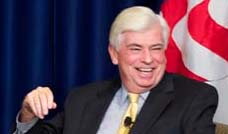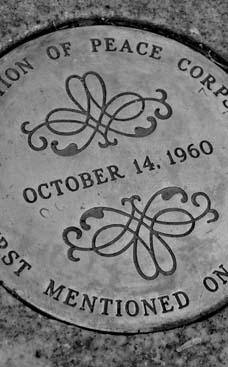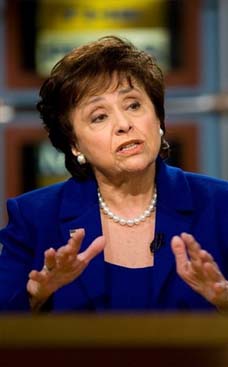
Among the things he learned was that, in the sub-Saharan country in which he found himself, where drought was almost always an issue, malnutrition was often caused not by a lack of food, but by a lack of variety in people's diet. While he was the only Peace Corps member working in Aouloumat, he had support from that organization, and from other groups, such as Doctors Without Borders, which operates in the area. Doctors Without Borders has an outpatient clinic in the nearby town of Madaoua, where they provide malnourished patients with a product called PlumpyNut, a fortified peanut butter product. Because people had to go to the clinic to get that product, they tended to look on it as "medicine," not "food." It did not make a significant impact on the day-to-day diet of the villagers. A few months into his work in Niger, Mr. Simms attended a Peace Corps workshop for health volunteers that discussed a program in which groups of women were given a nutrition course. Then a few of them were chosen to teach others, spreading the information. With the help of a Doctors Without Borders associate, he decided to use the model taught at the workshop in Aouloumat to improve nutrition for children. The incidence of child malnutrition in West Africa is among the highest in the world. Children in the village were usually weaned from breast milk using a porridge called koko, made of ground millet and water. Mr. Simms and his Doctors Without Borders counterpart added a product called kuli-kuli, a peanut resin, or byproduct widely available in the area that is rolled into balls and dried. It can be ground and the powder added to the koko as it cooked. With a bit of goat's milk and sugar, it made a delicious, protein-packed "cereal" for the children being weaned.
Niger RPCV Jonathan T. Simms started a project that could have a large impact on the health of the young children of that village and eventually, perhaps, all of Niger and beyond
MoBeach Man's Work Aids Children In West Africa
By: Diana T. Barth
Published: 11/02/10
For a little more than two years, Monument Beach resident Jonathan T. Simms, then a Peace Corps volunteer, lived and worked in a remote, rural village in Niger, a country in West Africa.
While there, roughly between 2007 and 2009, Mr. Simms, who is called by his initials, J.T., started a project that could have a large impact on the health of the young children of that village and eventually, perhaps, all of Niger and beyond.
Sometime in the future, he hopes to see whether the changes he helped implement-a new way to use local ingredients to "ramp up" the nutritional content of the food traditionally used in the village to wean babies-has been sustainable.
Although born in California, Mr. Simms has lived in Bourne for 22 of his 27 years. He went to Bourne High School, followed by prep school at Andover, then headed to college. He studied communications, film, and theater at Cornell University in Ithaca, New York, and at Vanderbilt University in Nashville, Tennessee, where he graduated in 2006.
While he knew that graduate school would probably eventually be in the cards, he had never been outside of the United States, and after finishing his undergraduate work, he wanted to see the world. He did not, however, want to just go on a vacation. He wanted to explore, but he also wanted to be a part of something bigger than himself.
The Peace Corps provided an answer.
Begun in 1961, the Peace Corps is approaching its 50th anniversary, but its outreach and recruitment have changed with the times. He was one of those who answered the call and he took off in 2007, winding up in the village of Aouloumat.
To get to that village, one travels on a lone, tarred road, Mr. Simms said, and then on a "red rock road." It is not unusual, he said, to have to walk in the bush to get where you want to be.
His work was in the health and natural resources sector, and in his role as a health agent, he had to learn a lot, very quickly, including the Hausa language spoken, along with French or a variation of that language, in most of that region of West Africa.
That work involved preventing malaria, providing HIV awareness and education, and family planning. But mostly, he focused on improving nutrition.
Among the things he learned was that, in the sub-Saharan country in which he found himself, where drought was almost always an issue, malnutrition was often caused not by a lack of food, but by a lack of variety in people's diet.
While he was the only Peace Corps member working in Aouloumat, he had support from that organization, and from other groups, such as Doctors Without Borders, which operates in the area.
Doctors Without Borders has an outpatient clinic in the nearby town of Madaoua, where they provide malnourished patients with a product called PlumpyNut, a fortified peanut butter product.
Because people had to go to the clinic to get that product, they tended to look on it as "medicine," not "food." It did not make a significant impact on the day-to-day diet of the villagers.
A few months into his work in Niger, Mr. Simms attended a Peace Corps workshop for health volunteers that discussed a program in which groups of women were given a nutrition course. Then a few of them were chosen to teach others, spreading the information.
With the help of a Doctors Without Borders associate, he decided to use the model taught at the workshop in Aouloumat to improve nutrition for children. The incidence of child malnutrition in West Africa is among the highest in the world.
Children in the village were usually weaned from breast milk using a porridge called koko, made of ground millet and water.
Mr. Simms and his Doctors Without Borders counterpart added a product called kuli-kuli, a peanut resin, or byproduct widely available in the area that is rolled into balls and dried. It can be ground and the powder added to the koko as it cooked. With a bit of goat's milk and sugar, it made a delicious, protein-packed "cereal" for the children being weaned.
A few months after that, a five-country conference was held in the nearby country of Burkina-Faso, and some volunteers from Niger attended.
At that conference, people learned that the moringa, a small, thin tree with leaves reminiscent of cooked spinach, Mr. Simms said, had "more vitamins and nutrients than any other food in West Africa," including, gram for gram, more vitamin A than carrots, more vitamin C than oranges, more potassium than bananas, more iron than spinach, and even more protein and calcium than milk.
He and the attendees at the conference reworked the koko recipe again, this time to add moringa powder. The result looked like pea soup, but passed the taste test. People took the recipe back to their communities.
Mr. Simms's best friend in the village was the chief's son, Tsahirou Kadri, a colleague about his age, a logical ally. His friend helped him develop a moringa nursery to supplement the existing trees.
A Peace Corps worker has a lot of autonomy, Mr. Simms says, and can take on a variety of projects, whether or not they are directly within the volunteer's purview. Peace Corps volunteers live in the same houses as the people they serve and eat the same food. They become a part of the life of the place in which they live. They receive a small stipend, one that probably makes them richer than their neighbors, but they do not set themselves apart.
That means, he said, that the projects they take on grow out of the needs of, and requests from, their friends and neighbors.
After a neighboring village some 20 kilometers away erected a cellphone tower, he was able to communicate more easily with the rest of the world. That meant he and other volunteers could solicit funds and materials from organizations like the International Rotary and pursue a variety of projects.
Because his interests lie in communication, as well as health, he started a literature group for women. The women, in particular, were hungry to learn.
They became advocates for the improved koko, a food they could make themselves, and use without having to go to the clinic and have it prescribed for them.
After Mr. Simms returned to the United States, he learned that the World Policy Journal, a magazine published by MIT for the New York-based World Policy Institute, had partnered with the National Peace Corps Association's Africa Rural Connect program to sponsor the first-ever contest in the magazine's history.
That contest asked readers of the journal and followers of Peace Corps activities to submit their solutions to "the critical problem of food security in Africa."
Mr. Simms submitted an article called "Ingenuity, Peanut Butter, and a Little Green Leaf." His article won first place and was chosen by a panel of five judges to be published.
When Mr. Simms came home after 27 months of service, he had intended to visit, get some medical treatment himself for the stomach problems the native diet had caused him, and then return.
He was all set to go back when he learned that there had been al-Qaeda activity in Niger and the area had been closed to him.
The people of Aouloumat are a peace-loving people, he said, whose religion still contains remnants of the animism that was once the religion of the area. They are friendly to Americans. Indeed, part of the Peace Corps mission is to teach people about America, person by person, project by project.
Niger, however, is located south of Algeria and Libya and north of Nigeria between Mali and Chad. The region is uranium-rich, and there is stiff competition among Chinese and French companies among others for that resource. Al-Qaeda, Mr. Simms said, had begun to move south from the Middle East on a mission to make converts in the area, using the message that natural riches were being removed without any recompense reaching the people.
He does not think the message would resonated with the people of the village in which he lived.
Now the manager of the Regal Nickelodeon Cinemas in East Falmouth, he may, instead, eventually go to graduate school, perhaps for international policy or public health.
He would still like, at some point, to return to Aouloumat to see for himself if the improved koko has changed the lives of the children and its use still spreading. He keeps in touch with his friends by phone.
He would also like, sometime, to be able to use what he learned in his film studies to make a documentary about the region.
The third prong of what a Peace Corps volunteer does is come home and share what he has learned.
To learn more about the Peace Corps, go to www.peacecorpsconnect.org. Mr. Simms's essay is online at
http://www.worldpolicy.org/blog/2010/09/21/ingenui ty-peanut-butter-and-little-green-leaf.













